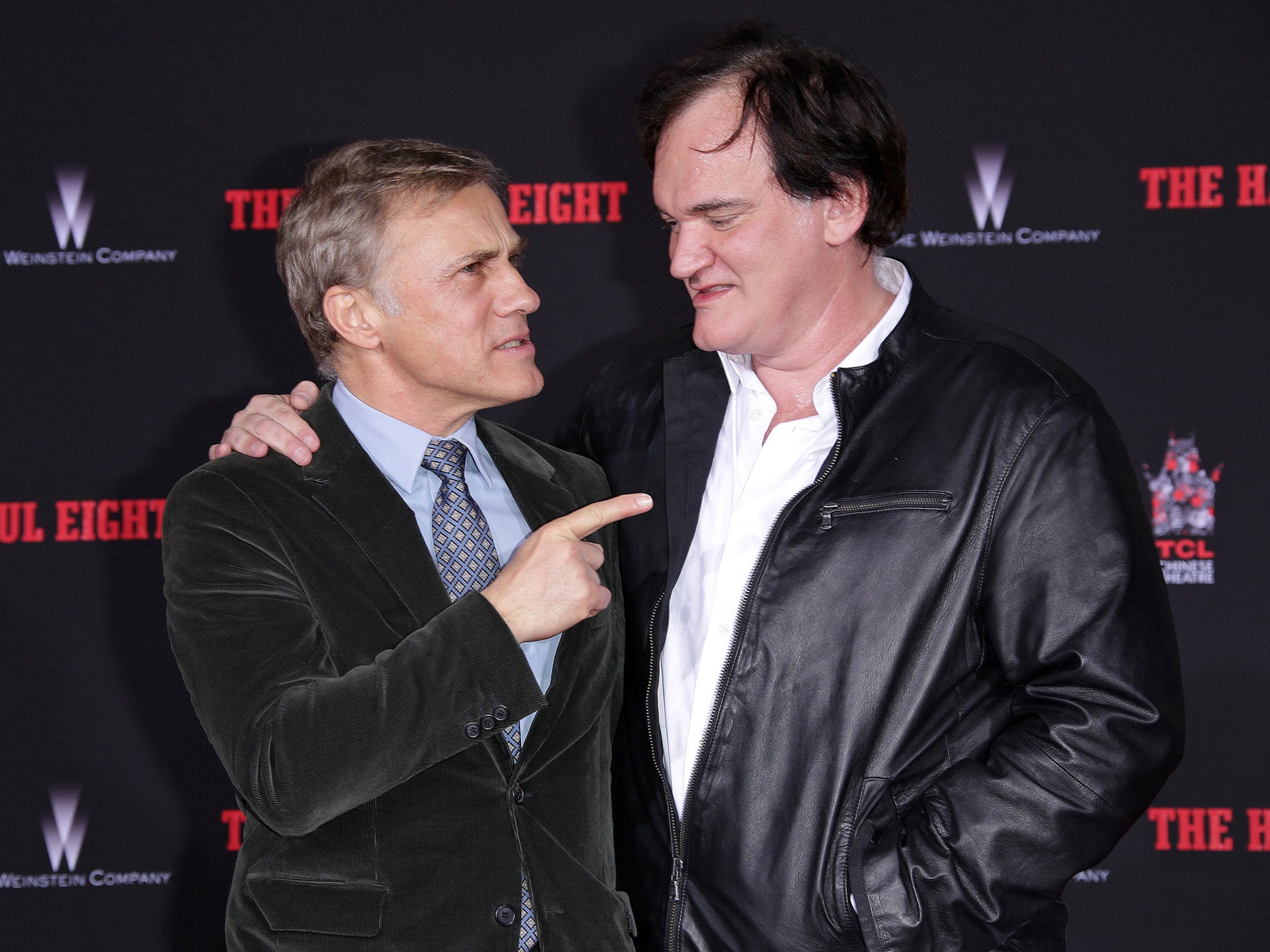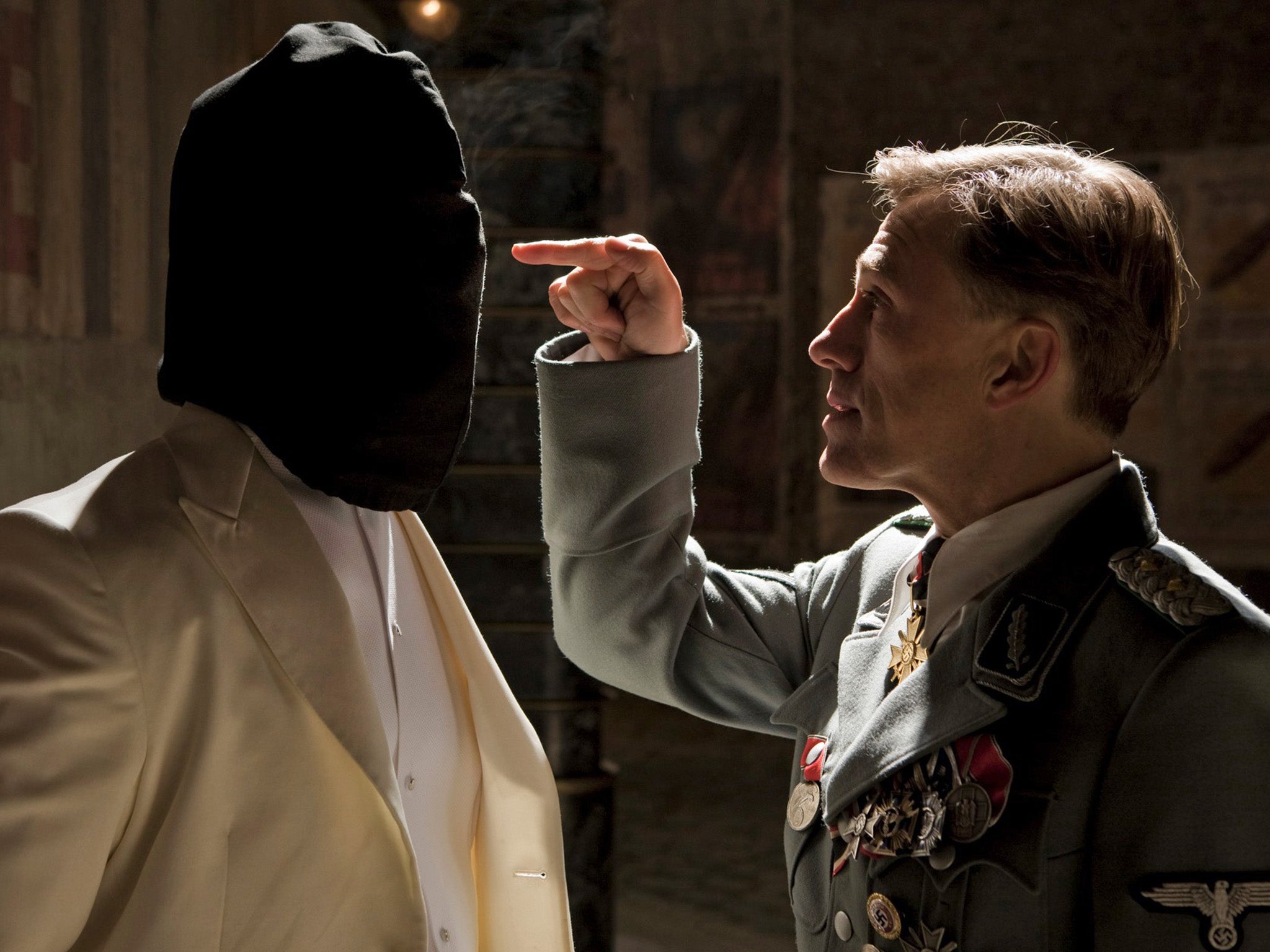Christoph Waltz moves from Tarantino to Verdi as an opera director
The Oscar-winning star of 'Inglourious Basterds' and 'Django Unchained' is directing a new production of Verdi’s 'Falstaff' for Opera Vlaanderen in Antwerp, Belgium, and says, for him, film and opera aren’t so different

Your support helps us to tell the story
From reproductive rights to climate change to Big Tech, The Independent is on the ground when the story is developing. Whether it's investigating the financials of Elon Musk's pro-Trump PAC or producing our latest documentary, 'The A Word', which shines a light on the American women fighting for reproductive rights, we know how important it is to parse out the facts from the messaging.
At such a critical moment in US history, we need reporters on the ground. Your donation allows us to keep sending journalists to speak to both sides of the story.
The Independent is trusted by Americans across the entire political spectrum. And unlike many other quality news outlets, we choose not to lock Americans out of our reporting and analysis with paywalls. We believe quality journalism should be available to everyone, paid for by those who can afford it.
Your support makes all the difference.Christoph Waltz acts musically – even operatically. Characters like the cunning SS officer he played in Quentin Tarantino’s film Inglourious Basterds, for which he won the first of two Oscars, and the sybaritic profiteer in the coming Downsizing draw much of their sly charisma from Waltz’s artful flow and pacing, and his command of vocal shades from soft purr to sharp steel.
So his latest incarnation is a natural fit, though it may surprise some fans: Waltz is the director of a new production of Verdi’s Falstaff for Opera Vlaanderen in Antwerp, Belgium and then travels to the company’s theatre in Ghent.
For him, film and opera aren’t so different.
“The full-blooded, juicy movie experience has a lot of operatic qualities,” he says in an interview after a rehearsal here. “I’m not talking about the film music, but about rhythm and colour and phrasing.”

Asked which of his movies would translate best to the opera stage, he immediately suggested the Tarantinos, Inglourious Basterds and Django Unchained. “I don’t know what they would sound like,” he says, grinning. “But from their gusto and sensuality, and the joy and panache in telling stories, they could be great operas.”
Classical music played an important role in Waltz’s upbringing in Vienna; his stepfather was a composer and conductor. As an audience member, he started with the best: At his first visit to the opera, when he was about 10, he saw the great soprano Birgit Nilsson in Turandot.
By the time he was a teenager, he had developed a two-opera-a-week habit, which he was able to afford thanks to standing-room tickets that cost not much more than a trip to the movies. He studied classical singing for a while, too, but describes his baritone as having been “too shrimpy” to ever fill a role like Falstaff, based on one of Shakespeare’s most irresistible creations: the charismatic glutton who gets his comeuppance for trying to seduce not one but two married women.
Falstaff is Waltz’s second go at directing opera, after leading Strauss’s Der Rosenkavalier here in 2013. For the company (formerly known as Flemish Opera) he’s part of a continuing effort to harness fresh talent from disciplines outside opera. Next up is a Pelléas et Mélisande, whose three directors include the performance artist Marina Abramovic.

Der Rosenkavalier drew some scathing reviews from German critics used to the shock-and-awe tactics of high-concept Regietheater. The Süddeutsche Zeitung called it a “crashing failure”; the Frankfurter Allgemeine Zeitung lamented the “filigree and almost too delicate” acting, with gestures and glances “that can only be appreciated with a TV close-up or binoculars.”
Waltz maintains that the kind of nuanced and precise acting that he honed in the theatre and on movie sets can be applied to opera. “Not that I want to revolutionize opera,” he said. “But if I can achieve specificity and precision in the acting – well, I wanted to see if that’s possible. Rosenkavalier showed me, at least, that it wasn’t a bad idea to pursue that. I didn’t get there all the way, so this is my second shot.”
The American soprano Jacquelyn Wagner, who sings the role of Alice Ford, says that Waltz “asks you to be very clear about what you’re doing with your body – clear hand gestures and none of this thumbly-wumbly stuff. No emotions that don’t really mean anything.”
She adds that the pared-down production, with a minimal set and costumes that blend 1950s fashions with Elizabethan touches, raised the stakes because it drew all the attention onto the characters. “Of course opera singers prefer a lovely set they can hide behind,” she says.
But Waltz insists that it wasn’t his task to illustrate a story. “I don’t think that I am the right person to voluptuously and elaborately decorate,” he says. “I am more the person, with my personality and my interest, to strip away anything that is unnecessary.”

He looks first to the music. Waltz was recently working on a scene in which the conniving Mistress Quickly offers Falstaff a letter intended to lure him to a second rendezvous – in actuality, a trap – with the married Alice Ford. Verdi illustrates the character’s inner deliberation with several bars of orchestral music during which Falstaff, whose last date with Alice ended in humiliation, fails to take the bait. Finally, Falstaff snatches the letter out of Quickly’s hands. A musical accent hints at the moment of decision.
“So you can take the letter on the accent; you can take it before; or you can take it after,” Waltz recalls. “It’s not an academic discussion at all. The singer said, ‘Well, I take it on the accent.’ I said, ‘Then we have two things at the same time. There’s no tension in it if you’re doing what the music does.’ ‘Well then,’ he said, ‘I take it before, so that the music emphasises it.’”
“I said, ‘No, the music doesn’t deserve that. The music is the impetus. Because the music is your thought, it’s your inspiration, your idea.”
“Some people show up expecting the caricature of Falstaff,” he says. “So the goal is to be so confident and so insistent upon the realism of it that they are brought into something that perks their attention instead of repulsing them.”

Above all, he said, he was still learning to trust that the more fine-grained acting Waltz was demanding would reach to the last row of the opera house – something the critics had questioned about Der Rosenkavalier.
“It’s hard when you’ve relied on certain tricks and showmanship,” Colclough says of playing Falstaff. “It is a little nerve-racking to shrink him.”
But Waltz was confident that the intention would project. “If you discipline yourself to communicate very precisely and very clearly it can be seen from a very long distance,” he says. “Because, wonderfully, human beings can tune in to a thought.”
Verdi’s ‘Falstaff’ is at Opera Vlaanderen in Antwerp, Belgium until 31 December
© New York Times
Join our commenting forum
Join thought-provoking conversations, follow other Independent readers and see their replies
Comments